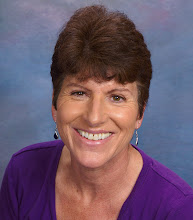Before starting to edit a novel, I remind myself that it’s not my story. I prepare for the author to have her own style, her own pace, and her own idea of how everything should turn out. I tell myself that my edits will likely be irrelevant to the book’s ultimate success or failure. In fact, even the author’s choices may turn out to be irrelevant. Connecting with the right agent or editor, at the right moment in his acquisition schedule, with exactly the right story is almost as much about luck as it is about talent, research, and editing.
Every reading experience is subjective. If I read a scene in which an abused wife makes a choice to take a beating rather than fight back, I may think it’s about survival because I’ve been in her shoes. Another reader might see the character as weak and hard to bond with. Another reader might simply be sick of domestic violence stories. Every reader brings his or her own baggage to the narrative. Any suggestions I make to the author are subjective, seen through my experiences and my reading preferences. In the long run, an agent or in-house editor may disagree with my content ideas. The writer may end up revising the same sections over and over until she comes full circle.
I’m a point-of-view purest and often make suggestions about tightening and signaling POV changes, but I realize many readers don’t care about POV, so why push it? Suggestions is the key word. When it comes to content or voice, I never tell a writer he should do anything. I merely suggest a possibility or suggest he consider another alternative. If the author ignores my suggestion and I see the manuscript again, I have no reason to argue the point and no reason to be disappointed. It’s not my story.
My objectives are to find the typos, improve the syntax, watch for inconsistencies, and offer content suggestions. If I help the writer improve her craft along the way, it’s a happy bonus. As with parenting, an editor has to know when her job is done and when to let go.
~~~~~~~~~~~~


Every reading experience is subjective. If I read a scene in which an abused wife makes a choice to take a beating rather than fight back, I may think it’s about survival because I’ve been in her shoes. Another reader might see the character as weak and hard to bond with. Another reader might simply be sick of domestic violence stories. Every reader brings his or her own baggage to the narrative. Any suggestions I make to the author are subjective, seen through my experiences and my reading preferences. In the long run, an agent or in-house editor may disagree with my content ideas. The writer may end up revising the same sections over and over until she comes full circle.
I’m a point-of-view purest and often make suggestions about tightening and signaling POV changes, but I realize many readers don’t care about POV, so why push it? Suggestions is the key word. When it comes to content or voice, I never tell a writer he should do anything. I merely suggest a possibility or suggest he consider another alternative. If the author ignores my suggestion and I see the manuscript again, I have no reason to argue the point and no reason to be disappointed. It’s not my story.
My objectives are to find the typos, improve the syntax, watch for inconsistencies, and offer content suggestions. If I help the writer improve her craft along the way, it’s a happy bonus. As with parenting, an editor has to know when her job is done and when to let go.
~~~~~~~~~~~~

L.J. Sellers is an award-winning journalist and editor and is the author of the Detective Jackson mysteries, The Sex Club and Secrets to Die For. She also loves to edit fiction and works with authors to keep her rates affordable. Contact her at:


I like this. It's very true. As a writer who had used many betas, I appreciate this line of thinking. As someone who had edited others’ work, I truly understand it as well. It’s hard but true.
ReplyDeleteThanks for sharing. You are much like I was when I was a technical editor. I did everything I could to make the work better - and it was usually much better as the people I edited for were scientists and engineers, not writers. In the end, my final thought was: your name goes on it, not mine.
ReplyDeleteI can imagine it's hard to be an editor. That's why I'm not one. (g)
ReplyDeleteIt's got to be really difficult to be subtle and not hurt someone's feelings if you're editing something that's really terrible.
Morgan Mandel
http://morganmandel.blogspot.com
Sometimes a pleasant and uncritical attitude on the part of the editor makes it so much easier for a writer. There is a huge difference between criticism and critique to my way of thinking, and LJ's bright attitude is likely why she has so much editing work! She's a cheerleader, too. That's not easy when the writing needs a lot of work, but it's a nice bonus for the author. Just a spoonful of sugar helps...
ReplyDeleteGood post, and something we can all learn from.
Dani
Great post. I think it also applies to critique partners or groups. Sometimes, you just have to let go of what bothers you and accept that it is not your novel you're giving notes on.
ReplyDeleteSo true, SJ. An overly aggressive writing group can ruin a story or keep you rewriting forever.
ReplyDeleteI so agree, LJ. It is just as true for ghostwriting. I have a small plaque in my office which says "It's Not About You." I find it's a good reminder that applies to many things.
ReplyDelete